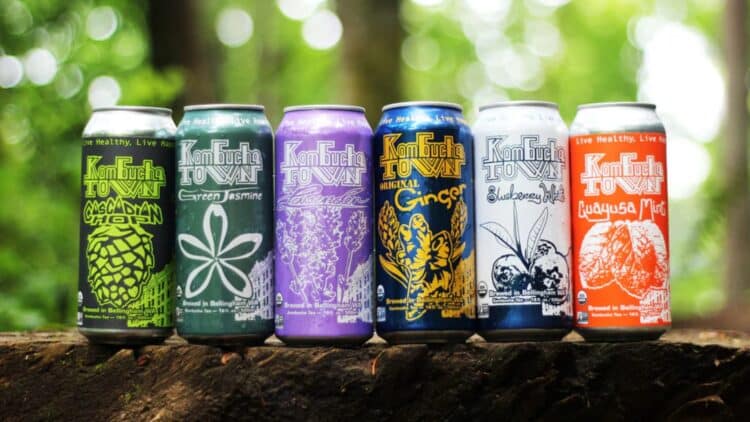It seems like an impossible odyssey to try to enter markets where the share has been absorbed by large companies for decades. Who would think of going up against the reign of Coca-Cola and Pepsi? It seems unbelievable, but Kombucha Town did just that.
It wasn’t an artificially carbonated drink with aspartame. It didn’t sell sugary soft drinks or energy drinks. Its biggest bet was on an ancient, fermented drink… kombucha. And it did quite well; believe it or not, the company wanted to become the third giant in the beverage industry. However, this adventure has come to a bitter end in the US courts. The company has just filed for bankruptcy under Chapter 11 of the Bankruptcy Code.
The cost of this beverage dream is measured in stratospheric figures: it has a debt of US$2.6 million. Founded in 2011 by Chris McCoy, Kombucha Town has spent 15 years trying to conquer our palates and stomachs… with mixed results.
What was Kombucha Town?
To understand the rise and fall of this company, we must first understand its flagship product. If, for whatever reason, you didn’t live through the 2010s, you may not know exactly what kombucha is. Kombucha is a fermented tea with a slightly sweet and sour taste. It is made using tea, sugar, and a symbiotic culture of bacteria and yeast called SCOBY. Apart from being tasty, it has probiotic properties thanks to this natural fermentation process. It quickly became fashionable in the United States thanks to its promises of intestinal well-being and bacterial flora. It was the era of hipsters and alternative lifestyles, and kombucha was the perfect drink for those who wanted to be counterculture.
Kombucha Town capitalized on this trend of seeking natural, additive-free beverages that promoted digestion and intestinal balance. This modern vision helped them sell ready-to-drink cans. Although most kombucha is sold in glass bottles, Kombucha Town chose cans because they were more practical to distribute and then recycle.
They did not focus on a single flavor, but offered a wide variety. Their product catalog included options such as traditional kombucha (with flavors such as Original Ginger or Guayusa Mint). They also launched a line of probiotic sparkling water (we also wonder how sparkling water can be remotely prebiotic) called Live Seltzer. They expanded their line to include alcoholic beverages.
Not only were you being alternative and healthy by buying Kobucha Town drinks, but the company also pledged to plant a tree with every online purchase. It was full of values, ideal for the 21st-century consumer who doesn’t just want to buy a drink, but to change the world through their consumerism.
The American Dream: Kombucha Edition
Founder Chris McCoy was determined to bring his healthy drink to every corner of the United States. And he succeeded: he achieved nationwide distribution in the United States. The impact of this company is palpable in its hometown of Bellingham, WA. There, they had a popular taproom and restaurant called The Culture Café. This was the headquarters where they developed all their new products.
They gave it their all in early 2020. By then, the company had gained tremendous momentum in the healthy beverage market. The company also had its own canning line and was expecting a massive surge that would take them to 800 grocery stores on the West Coast. However, this rapid scaling and investment in the supply chain became a trap.
Timing is everything, and as with so many other companies, COVID-19 was the death knell for the business. Just when Kombucha Town had invested to supply 800 new stores, trade came to a standstill. According to the founder, everything fell apart in a matter of 90 days. Kombucha Town tried to stay afloat with government loans and a crowdfunding campaign in 2022. Finally, in July 2025, the company was forced to file for Chapter 11 protection.
The market is cruel: even if you have a great product, a moment of bad luck can ruin everything. Even with the help of probiotics, it’s hard to digest the bankruptcy of this great company.

